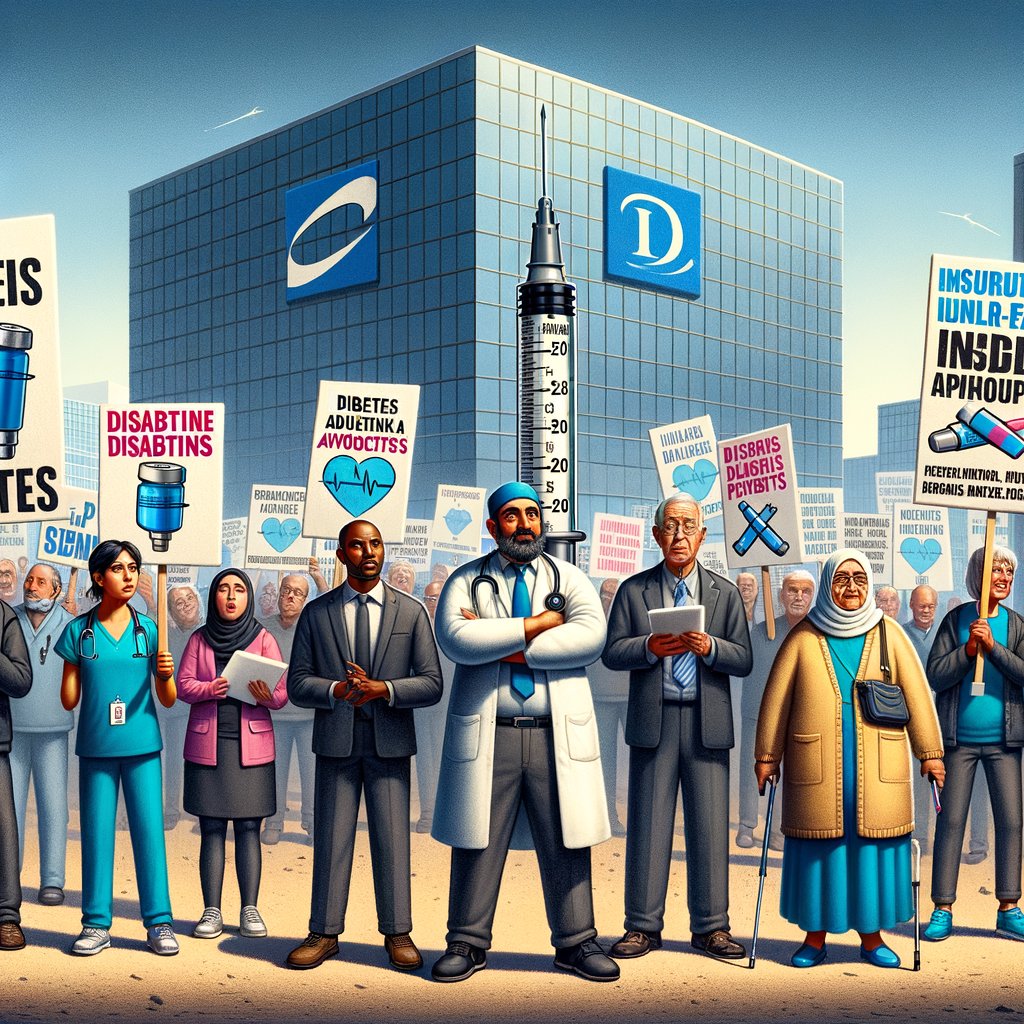Image created by AI
The Insulin Pen Shortage in South Africa: Doctors Without Borders Challenges Novo Nordisk
Doctors Without Borders (Médecins Sans Frontières, MSF), along with affiliated organizations advocating for diabetes patients, recently demonstrated outside the Novo Nordisk offices in Sandton. They voiced strong opposition to the Danish pharmaceutical giant's cessation of insulin pen supplies to South Africa and other developing nations.
Historically, Novo Nordisk has been a primary supplier of these insulin pens, which are crucial for many diabetes patients due to their ease of dosing and less invasive public usage. The protestors, spearheaded by MSF, are not only demanding the reinstatement of insulin pen supplies but also urging Novo Nordisk to reduce the prices of other insulin products.
The urgency of this matter escalated when it became apparent that no other bidder had participated in a crucial national tender intended to begin in May 2024. This led to significant shortages starting early this year, forcing many patients to revert to traditional (and cumbersome) insulin vials and syringes.
According to reports from GroundUp, Novo Nordisk has shifted its focus towards their more profitable GLP-1 products like Wegovy and Ozempic, used primarily for weight loss, which have substantially increased the company's market value.
Insulin pens offer a preset dosage mechanism, which is crucial for accurate insulin administration, particularly reducing the risk of dangerous overdosing. Candice Sehoma from MSF highlighted the practical advantages of insulin pens over vials, emphasizing their discreet nature and ease of use, which significantly alleviate the stigma often associated with managing diabetes publicly.
In response, Thabeng Leping, Public Affairs Director at Novo Nordisk South Africa, stated that while the company has reduced the volumes, they have not fully ceased the supply of insulin pens. They continue to provide them to "vulnerable" groups, including children, the elderly, visually impaired individuals, and patients with conditions that impede the handling of vials, like arthritis.
Nevertheless, the available quantities are insufficient according to both Leping and Khadija Jamaloodien, the health department's director for public procurement. This limitation complicates the purchasing processes in various provinces due to the absence of a formal contract.
Moreover, MSF alleges that the shift in Novo Nordisk's production focus is not just a business decision but one that significantly endangers diabetic patients' health due to the manufactured shortage. They insist that if Novo Nordisk withdraws from supplying human insulin pens, they should at least provide alternative analogue insulins at comparable prices.
Discussions and plans to introduce insulin analogues in pens into the public sector are ongoing, following adjustments to the Essential Medicines List to include these products. However, challenges remain, including safe patient transition and cost concerns.
The insulin shortage has highlighted critical issues regarding pharmaceutical responsibilities and the impacts of shifting manufacturing priorities on vulnerable populations. As negotiations continue, healthcare providers and patients await resolutions that will bridge the gap between corporate profitability and essential healthcare needs.










